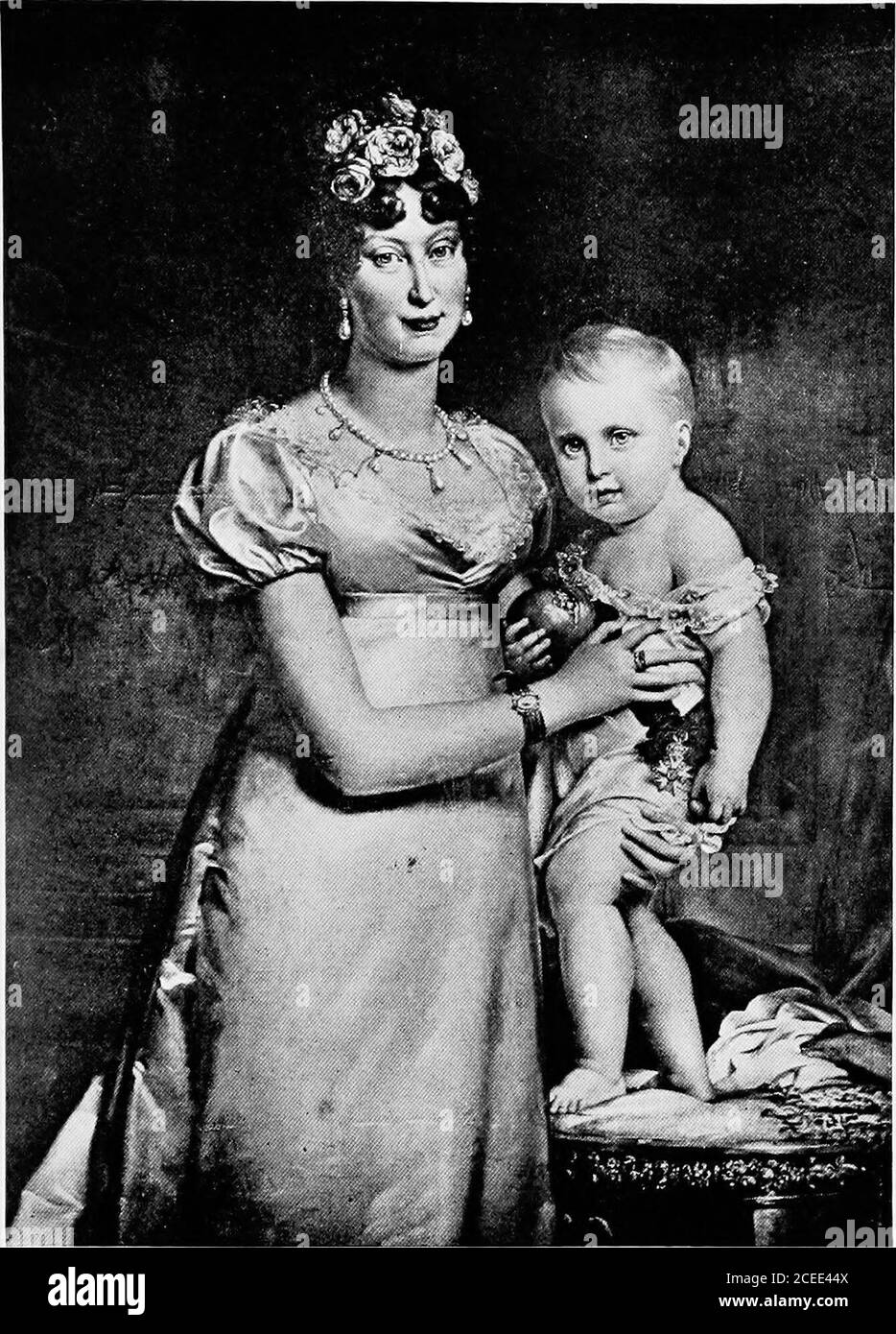. In the footsteps of Napoleon, his life and its famous scenes. ouises features were undistinguished and plain.The Countess Potocka speaks of her wooden face andlarge, pale blue, porcelain eyes. Still it is agreed that hertall figure was good; some authorities say it was even beauti-ful, and her hair was light chestnut and abundant. Two old, drab churches stand neighbours on little sidestreets of Vienna off the Ring and near the Burg, the citypalace of the Hapsburgs. In one Marie Louise was married;in the other she was buried. They are the beginning and theend of her strange story. When, in Ma

Image details
Contributor:
Reading Room 2020 / Alamy Stock PhotoImage ID:
2CEE44XFile size:
7.1 MB (578.5 KB Compressed download)Releases:
Model - no | Property - noDo I need a release?Dimensions:
1340 x 1865 px | 22.7 x 31.6 cm | 8.9 x 12.4 inches | 150dpiMore information:
This image is a public domain image, which means either that copyright has expired in the image or the copyright holder has waived their copyright. Alamy charges you a fee for access to the high resolution copy of the image.
This image could have imperfections as it’s either historical or reportage.
. In the footsteps of Napoleon, his life and its famous scenes. ouises features were undistinguished and plain.The Countess Potocka speaks of her wooden face andlarge, pale blue, porcelain eyes. Still it is agreed that hertall figure was good; some authorities say it was even beauti-ful, and her hair was light chestnut and abundant. Two old, drab churches stand neighbours on little sidestreets of Vienna off the Ring and near the Burg, the citypalace of the Hapsburgs. In one Marie Louise was married;in the other she was buried. They are the beginning and theend of her strange story. When, in March, 1810, she stood atthe altar of the Augustin church to receive from her UncleCharles, as Napoleons proxy, the ring of the Emperor of theFrench, not a year had yet passed since she and the imperialfamily had knelt at that altar in anxious prayer for the vic-tory of Charles over Napoleon. When the new Empress of the French arrived at the RiverInn, the frontier of the kingdom of Bavaria and of the Na-poleonic empire, her dowry of $100, 000 was counted out and. Makie Louise and the King of Rome, by Geeard THE SECOND MARRIAGE 305 delivered to the French and she herself was formally checkedoff and transferred like any other consignment. A woodenpavilion had been erected on the boundary, and after enteringit from the Austrian side, Marie Louise passed on to a secondor neutral chamber in the pavilion. Beyond that room wasthe third or French compartment, where a company of cour-tiers from Paris waited to receive their sovereign. In theireagerness to see her, they had bored gimlet holes in the par-tition between the two rooms, and the prefect of the Tuileries, he who had helped three months before to carry the faintingJosephine to her apartments, records in his memoirs his peepat her. Soon the Austrians knocked at the door for theFrench to come in. They entered to find the Empress seatedon a throne, and her eyes were filled with tears as she lookedon her subjects for the first time. Ma